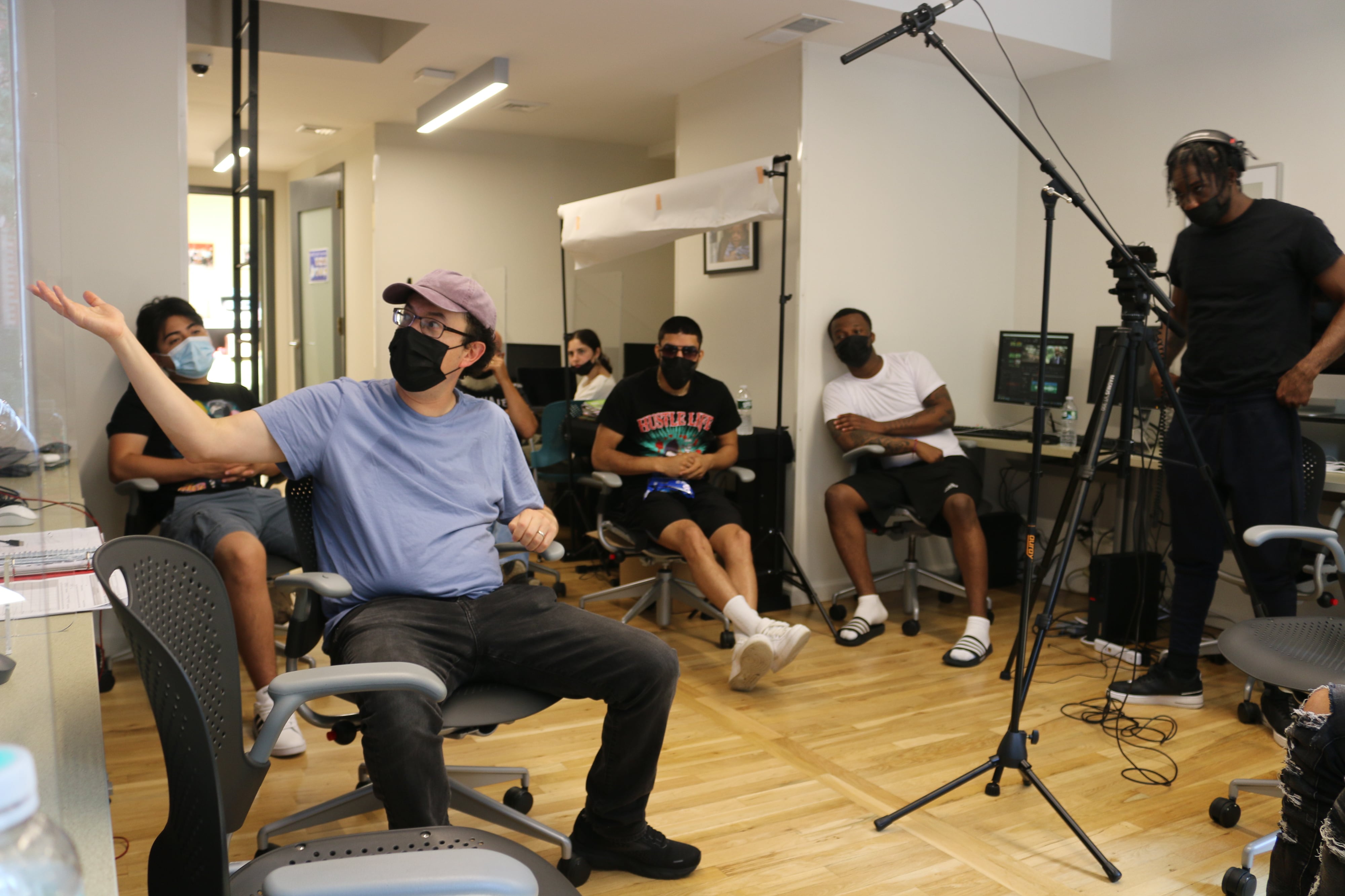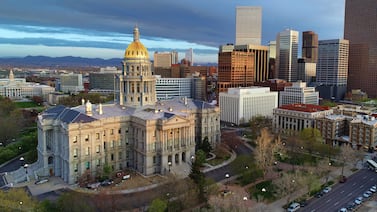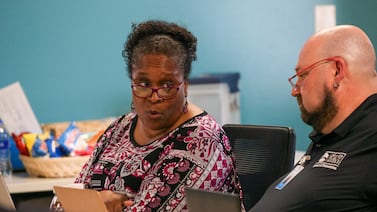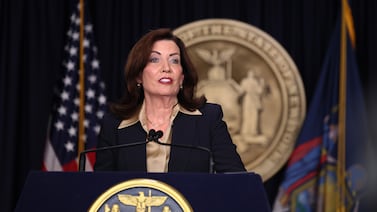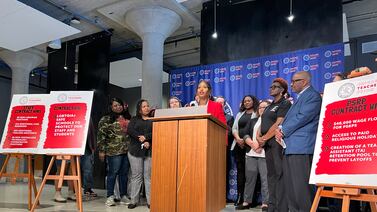New York City is significantly expanding paid job opportunities for youth this summer, Mayor Eric Adams announced Tuesday.
This year’s Summer Youth Employment Program, also known as SYEP, will include 90,000 slots, up from about 75,000 before the pandemic hit. Another 10,000 slots will be provided from other city programs, though officials did not say which ones.
SYEP provides young people ages 14-24 with summer jobs at $15 an hour in fields ranging from retail and government agencies to food service and nonprofit organizations.
“A job, internship exposure, is more than just putting money in the pockets to help a family,” Adams said. “It is a way to understand that there’s a world out there that they deserve to be a part of.”
Adams has framed the jobs program expansion as part of a broader plan to combat gun violence and provide a paid summer opportunity “for every young person who wants one.” One recent study found that participants in SYEP were less likely to be arrested compared with those who applied but weren’t accepted, though there did not appear to be a significant effect on arrests or convictions for participants years later.
The summer jobs program more than doubled in size under former Mayor Bill de Blasio, but whether Adams’ commitment of 100,000 slots is enough to guarantee universal youth summer jobs remains murky.
Some estimates put the number needed to achieve that goal at 150,000, which is roughly the number of applicants in recent years (excluding 2020, which saw a decline due to the pandemic).
During a press conference on Tuesday, Adams seemed to acknowledge that there was still a gap of tens of thousands of seats to make the program universal, noting that the city “has been reaching outside the boundaries of our city administration to get that 30,000-person gap filled.”
He added: “We agree we want every young person that’s looking for a job to have a job.”
Bill Chong, the commissioner of the Department of Youth and Community Development which runs the jobs program, told reporters that 100,000 seats would be enough to create a universal jobs program because a sizable share of SYEP applicants never follow through or find other summer opportunities.
Lauren Bale, a City Hall spokesperson, stopped short of calling the program universal, writing in an email that the additional slots “will go a long way to meet demand.” She said the city is considering partnerships with private entities to further expand the program.
The announcement won praise from some advocates who have called for more summer employment slots, which are offered through a lottery when there are more applicants than available spots.
“One hundred thousand is an incredible expansion for this summer, and we think it will do a lot to serve students who apply,” said J.T. Falcone, senior policy analyst for United Neighborhood Houses, which represents settlement houses that support summer youth programs.
Falcone, who has advocated for a more gradual ramp up to making the program universal, said 100,000 slots could be enough for every student who wants one this year, as the pandemic has affected application rates.
The program would likely grow in future years if the city began marketing the program as universal, Falcone said, explaining that the lottery system dissuaded some young people from applying since they’re not guaranteed a spot.
Adams also announced that this year’s program will include online financial literacy courses.
“If those young people may earn extra cash over the summer, and they don’t understand the value of that, then we fail,” the mayor said.
This summer’s additional slots are expected to cost $79 million, officials said. Last summer the program’s total price tag was $170 million.

